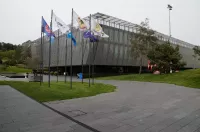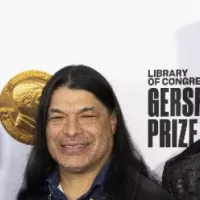Austria is a landlocked country in Central Europe, situated in the Eastern Alps. It's a federation of nine states, with Vienna as its capital and largest city. Austria shares borders with Germany, the Czech Republic, Slovakia, Hungary, Slovenia, Italy, Switzerland, and Liechtenstein. The country covers an area of 83,879 square kilometers and has a population of approximately 9 million people.
1908: Annexation of Bosnia and Herzegovina
In 1908, Austria-Hungary annexed Bosnia and Herzegovina.
October 1918: Founding of the Republic of German-Austria
In October 1918, the Provisional National Assembly for German Austria founded the Republic of German-Austria by appointing a government called Staatsrat.
November 1918: Establishment of New Order in Central Europe
In November 1918, a new order of Central Europe was established, creating new states and altering others, including reducing Austria to the Republic of German-Austria.
November 1918: End of the War and Declaration of a Democratic Republic
In November 1918, the responsibility for the end of the war was left to the emperor. On November 12th, German-Austria declared itself to be a democratic republic.
1918: Proclamation of the Republic of German-Austria
In 1918, the defeat and collapse of the empire led to the proclamation of the Republic of German-Austria.
1919: Establishment of the First Austrian Republic
In 1919, the First Austrian Republic was established.
October 1920: Carinthian Plebiscite
In October 1920, the border between Austria and the Kingdom of Yugoslavia was settled with the Carinthian Plebiscite.
November 1920: Passing of the Constitution
In November 1920, the constitution was passed, renaming the Staatsrat as Bundesregierung (federal government) and Nationalversammlung as Nationalrat (national council).
1920: Federal Constitutional Law of 1920
In 1920, Austria officially became a federal, representative democratic republic through the Federal Constitutional Law.
1920: German becomes official language
In 1920, German became the official language of Austria, based on article 8 of its constitution.
1920: Treaty of Trianon
In 1920, the Treaty of Trianon (for Hungary) confirmed and consolidated the new order of Central Europe, which to a great extent had been established in November 1918, creating new states and altering others.
1920: Constitution of 1920
In 1920, the constitution for the political system of the Second Republic of Austria was established.
1922: International Loan Granted
In the autumn of 1922, Austria was granted an international loan supervised by the League of Nations to avert bankruptcy and stabilize the currency.
1925: Introduction of the Austrian Schilling
In 1925, the Austrian schilling was introduced, replacing the Krone at a rate of 10,000:1.
1929: Economic High and Crash
From 1925 to 1929, the Austrian economy enjoyed a short high before nearly crashing after Black Tuesday.
1929: Amendment of Constitution
In 1929, the constitution of 1920 was amended.
1929: Constitution of 1929
In 1929, the constitution of 1920 was amended.
1931: Creditanstalt event comparison
In February 2014, Chancellor Werner Faymann warned that the potential failure of HGAA would be comparable to the 1931 Creditanstalt event.
1933: Establishment of Autocratic Regime
In 1933, Chancellor Engelbert Dollfuss established an autocratic regime.
February 1934: Crackdown on Social Democrats
In February 1934, members of the Schutzbund were executed, the Social Democratic party was outlawed, and many of its members were imprisoned or emigrated.
February 1934: Austrian Civil War Broke Out
The Austrian Civil War broke out on 12–15 February 1934.
May 1934: Imposition of New Constitution
On 1 May 1934, the Austrofascists imposed a new constitution ("Maiverfassung") which cemented Dollfuss's power.
May 1934: Termination of Constitutional Law
On 1 May 1934, the Federal Constitutional Law of 1920 was terminated by dictator Dollfuss.
1934: Formation of Austrofascist Dictatorship
In 1934, anti-parliamentarian sentiments led to the formation of an Austrofascist dictatorship under Engelbert Dollfuss.
1936: Foundation of Austrian Serbian Society
In 1936, the Austrian Serbian Society was founded.
March 1938: Referendum Announced
In March 1938, Kurt Schuschnigg announced a referendum on Austria's independence from Germany, to be held on March 13.
March 1938: The Anschluss
On 12 March 1938, Austrian Nazis took over the government, while German troops occupied the country. On 13 March 1938, the Anschluss was officially declared.
March 1938: Annexation by the Third Reich
On 13 March 1938, Austria was annexed by the Third Reich and ceased to exist as an independent country (the Anschluss).
April 1938: Referendum on Union with Germany
In April 1938, Adolf Hitler established a referendum which confirmed the union with Germany.
April 1938: Parliamentary Elections in Germany
On 10 April 1938, parliamentary elections were held in Germany (including recently annexed Austria). They took the form of a single-question referendum approving a single Nazi-party list for the Reichstag and the annexation of Austria.
1938: Jewish Austrians Flee the Country
About 140,000 Jewish Austrians had fled from the country in 1938–39.
1939: Austrian Military Deaths in WW2
From 1939 to 1945, the total number of Austrian military deaths was 260,000.
1942: Renaming of Austria
In 1942, the Nazis renamed Austria the "Alpine and Danubian Gaue" (Alpen-und Donau-Reichsgaue). Prior to this, since 1938 it was called the "Ostmark".
1943: Moscow Declaration
In 1943, as stipulated in the Moscow Declaration, a subtle difference was seen in the treatment of Austria by the Allies.
April 1945: Declaration of Independence
On 27 April 1945, Karl Renner, Adolf Schärf, Leopold Kunschak, and Johann Koplenig declared Austria's secession from the Third Reich by the Declaration of Independence and set up a provisional government in Vienna.
May 1945: Federal Constitutional Law Declared Valid Again
On 1 May 1945, the Federal Constitutional Law of 1920 was declared valid again.
May 1945: Re-enactment of Constitution
On May 1945, the constitution of 1920, as amended in 1929, was re-enacted.
1945: Liberation of Austria
In 1945, after its liberation, Austria began a decade of Allied occupation.
1945: Reintroduction of Constitution
In 1945, the constitution of 1920 and 1929 was reintroduced, forming the basis of the Second Republic's political system.
1945: Post-War Governance
Since 1945, Austria was governed by single-party governments only twice.
July 1946: Nationalization Law Passed
On 26 July 1946, the Austrian Parliament passed its first nationalization law, seizing approximately 70 mining and manufacturing companies.
1951: Standardization of Austrian German
In 1951, Austrian German was standardized in Austria when the Österreichisches Wörterbuch was published by the Ministry of Education, Science and Research.
1954: Football Team's Third Place at World Cup
In 1954, the national football team's run to third place at the World Cup boosted national self-confidence after World War II.
May 1955: Austrian State Treaty
On 15 May 1955, Austria regained full independence by concluding the Austrian State Treaty with the allies of World War II.
October 1955: Austrian State Treaty and Neutrality Declaration
In October 1955, the Austrian State Treaty ended the occupation of Austria and recognised it as an independent state. On 26 October 1955, Austria declared its perpetual neutrality.
October 1955: Declaration of Permanent Neutrality
On 26 October 1955, all occupation troops had left and Austria declared its permanent neutrality by an act of parliament. This day is now Austria's National Day.
1955: Austrian State Treaty
Following the Austrian State Treaty (Staatsvertrag) of 1955, Slovenes in Carinthia, as well as Croats and Hungarians in Burgenland were recognised as a minority and have had special rights.
1955: Austria Regains Sovereignty and Declares Neutrality
In 1955, Austria regained its sovereignty and declared its perpetual neutrality after a decade of Allied occupation.
1955: Constitutional Law on Neutrality
In 1955, The only part of the Constitutional Law on Neutrality of 1955 still fully valid is not to allow foreign military bases in Austria.
1955: Membership in the United Nations
Since 1955, Austria has been a member of the United Nations.
1964: 1964 Winter Olympics
In 1964, Innsbruck hosted the Winter Olympics, featuring bobsleigh and luge competitions.
1966: Single-Party Government
From 1966 to 1970, Austria was governed by the ÖVP in a single-party government.
1970: Single-Party Government
From 1970 to 1983, Austria was governed by the SPÖ in a single-party government.
1972: Construction of nuclear power plant begins
In 1972, Austria began construction of a nuclear power plant at Zwentendorf on the River Danube, following a unanimous vote in parliament.
1975: Niki Lauda's 1975 F1 World Championship
In 1975, Niki Lauda won his first Formula One World Championship.
1976: 1976 Winter Olympics
In 1976, Innsbruck again hosted the Winter Olympics, which included bobsleigh and luge competitions.
1977: Niki Lauda's 1977 F1 World Championship
In 1977, Niki Lauda won his second Formula One World Championship.
1978: Referendum votes against nuclear power
In 1978, a referendum voted approximately 50.5% against nuclear power, and parliament subsequently passed a law forbidding the use of nuclear power despite the plant having been finished.
1982: Abolishment of Compulsory Voting
In 1982, Austria began to abolish compulsory voting in steps.
1983: End of SPÖ Single-Party Government
In 1983, the SPÖ's period of governing via a single-party government ended.
1984: Niki Lauda's 1984 F1 World Championship
In 1984, Niki Lauda secured his third Formula One World Championship.
1986: Kurt Waldheim Elected President
In 1986, Kurt Waldheim, former secretary-general of the United Nations, was elected President of Austria.
1990: Forest cover in Austria
In 1990, Austria's forest cover was 3,775,670 hectares.
1991: Overflight Rights Granted
In 1991, Austria began to reassess its neutrality, granting overflight rights for the UN-sanctioned action against Iraq.
1992: Acknowledgment of Nazi Crimes
In 1992, Chancellor Franz Vranitzky officially acknowledged that thousands of Austrians had taken part in serious Nazi crimes.
1992: End of Waldheim Presidency
In 1992, Kurt Waldheim's term as President of Austria came to an end.
1994: Referendum on EU Membership
In 1994, a referendum was held where a majority of two-thirds consented to Austria becoming a member of the European Union.
1994: Recognition of Romani and Sinti
Since 1994, the Romani people and Sinti have been an officially recognised ethnic minority in Austria.
January 1995: Austria Joins the European Union
On January 1995, Austria officially became a member of the European Union.
1995: Membership in the European Union and Signing of Schengen Agreement
In 1995, Austria became a member of the European Union and signed the Schengen Agreement.
1995: Austrian Companies become active in Eastern Europe
Since 1995 Austrian companies have been active players and consolidators in Eastern Europe.
1995: Partnership for Peace
Since 1995, Austria has developed participation in the EU's Common Foreign and Security Policy. Also in 1995, it joined NATO's Partnership for Peace.
1995: European Court of Justice Influence
Since 1995, the European Court of Justice may overrule Austrian decisions in matters defined by the laws of the European Union.
1996: Thomas Muster ranked number 1 in ATP
In 1996, Thomas Muster was ranked number 1 in the ATP ranking.
1997: ÖVP on NATO membership
In 1997, Werner Fasslabend from ÖVP did not rule out a future NATO membership for Austria.
1998: Women Allowed as Professional Soldiers
Since 1998, women volunteers have been allowed to become professional soldiers in Austria.
1999: Adoption of the Euro Currency
In 1999, Austria adopted the euro currency.
2000: Bank Austria acquired by HypoVereinsbank
In 2000, Bank Austria was acquired by HypoVereinsbank for 7.8 billion EUR.
2001: Foreign Nationals living in Austria
According to census information published by Statistik Austria for 2001 there were a total of 710,926 foreign nationals living in Austria.
2001: Decline in Lutheran church adherents
Between 2001 and 2016, the Lutheran church recorded a loss of 74,421 adherents.
2001: Religious Affiliation
In 2001, about 74% of Austria's population were registered as Catholic, while about 5% considered themselves Protestants, they are obliged to pay a mandatory membership fee (calculated by income – about 1%) to their churches.
2001: Population without religion
The 2001 census reported that about 12% of Austria's population declared themselves without a religion, and around 340,000 were registered as members of various Muslim communities.
June 2003: Constitutional Convention
On June 2003, the Österreich-Konvent was convened to consider reforms to the constitution.
2004: Complete Abolishment of Compulsory Voting
In 2004, the abolishment of compulsory voting in Austria was completed.
2005: Banca Comercială Română acquired by Erste Group
In 2005, Banca Comercială Română was acquired by Erste Group for 3.7 billion EUR.
October 2006: General Elections
In October 2006, the Social Democratic Party (SPÖ) emerged as the strongest party after general elections, with the Austrian People's Party (ÖVP) coming in second.
2006: GDP growth
In 2006, Austria's GDP growth reached 3.3%.
January 2007: Grand Coalition Formed
In January 2007, the People's Party and SPÖ formed a grand coalition with Alfred Gusenbauer as Chancellor.
2007: Austria's tourism ranking
In 2007, Austria ranked 9th worldwide in international tourism receipts, with 18.9 billion US$, and 12th in international tourist arrivals with 20.8 million tourists.
2007: Lowering of Voting Age
In 2007, the voting age in Austria was lowered from 18 to 16.
June 2008: Grand Coalition Breakup
In June 2008, the grand coalition between the People's Party and SPÖ broke up.
September 2008: Elections
In September 2008, elections further weakened both major parties (SPÖ and ÖVP), but together they still held 70% of the votes.
October 2008: Death of Jörg Haider
On 11 October 2008, Jörg Haider died in a car accident.
2008: End of Border Assistance
In 2008, assistance from the Austrian military to Austrian border guards came to an end when Hungary and Slovakia joined the EU Schengen Area.
2008: Financial Crisis
The 2008 financial crisis impacted Austria's economy, leading to financial difficulties for Hypo Alpe-Adria-Bank International.
December 2009: Hypo Alpe-Adria-Bank International purchased by the government
In December 2009, the Austrian government purchased Hypo Alpe-Adria-Bank International for 1 euro due to credit difficulties.
2009: Porsche Holding Salzburg acquired by Volkswagen Group
In 2009, Porsche Holding Salzburg was acquired by Volkswagen Group for 3.6 billion EUR.
November 2010: Austria withholds EU bailout installment
On 16 November 2010, Austria indicated it would withhold the December installment of its contribution to the EU bailout of Greece, citing the worsening Greek debt situation.
2010: Eurobarometer
According to the Eurobarometer 2010,
2010: Austrian Companies active in Eastern Europe
Between 1995 and 2010, 4,868 mergers and acquisitions with a total known value of 163 billion EUR involved Austrian firms.
2011: Liechtenstein Joins Schengen Area
In 2011, Liechtenstein joined the Schengen Area, eliminating border controls between it and Austria.
2012: Defence Expenditures
In 2012, Austria's defence expenditures corresponded to approximately 0.8% of its GDP.
2012: First Winter Youth Olympics in Innsbruck
In 2012, Innsbruck hosted the first Winter Youth Olympics.
August 2013: Highest temperature recorded
In August 2013, Austria recorded its highest temperature at 40.5 °C (105 °F).
2013: Legislative Elections
In 2013, legislative elections resulted in the Social Democratic Party receiving 27% of the vote, and the People's Party 24%, giving them a majority of seats.
February 2014: HGAA situation unresolved
As of February 2014, the HGAA situation remained unresolved, leading Chancellor Werner Faymann to warn of potential consequences comparable to the 1931 Creditanstalt event.
2015: Population without religion
By 2015, the share of the Austrian population declaring themselves without a religion had grown to 20%.
2015: Forest ownership in Austria
In 2015, 18% of Austria's forest area was under public ownership, 82% under private ownership, and 0% with other or unknown ownership.
2015: Births to unmarried women
In 2015, 42.1% of births in Austria were to unmarried women.
May 2016: Christian Kern Becomes Chancellor
On 17 May 2016, Christian Kern from Social Democrats (SPÖ) was sworn in as the new chancellor, succeeding Werner Faymann.
2016: Decline in Lutheran church adherents
Between 2001 and 2016, the Lutheran church recorded a loss of 74,421 adherents.
2016: Austria's ecological footprint
In 2016 Austria had 3.8 global hectares of biocapacity per person and they used 6.0 global hectares of biocapacity which amounts to Austria's ecological footprint of consumption.
2016: Life expectancy
In 2016, the life expectancy in Austria was estimated at 81.5 years (78.9 years male, 84.3 years female).
2016: Increase in Muslim Population
The number of Muslims in Austria doubled in the fifteen years to 2016, reaching 700,000.
January 2017: Alexander Van der Bellen Sworn In
On 26 January 2017, Alexander Van der Bellen was sworn in as the Austrian president.
October 2017: Snap Election
In October 2017, a snap election was held after the Grand Coalition broke in Spring 2017.
December 2017: New Government Sworn In
On 18 December 2017, a new government between the centre-right wing and the right-wing populist party under the new chancellor Sebastian Kurz was sworn in.
2017: Physician Density in Austria
As of 2017, Austria had 271 hospitals and 45,596 physicians, with approximately 54% working in hospitals, resulting in a high physician density compared to other OECD countries.
2017: Total fertility rate
In 2017, Austria's total fertility rate (TFR) was estimated at 1.52 children born per woman, below the replacement rate of 2.1.
2018: Austria's Forest Landscape Integrity Index
In 2018, Austria had a Forest Landscape Integrity Index mean score of 3.55/10, ranking it 149th globally out of 172 countries.
2018: Establishment of Health Professional Registry
In 2018, a new mandatory health professional registry was set up in Austria.
2018: Early Childhood Education Attendance
In 2018, approximately 90% of children between the ages of three and five attended early childhood education programs in Austria.
September 2019: New Elections Called
In September 2019, new elections were called due to the collapse of the coalition government.
2019: Health Spending and Cancer Deaths
In 2019, Austria's health spending per capita ranked third in the EU, and approximately 21,500 people died of cancer, with lung cancer being the primary cause. Health-related out-of-pocket expenditures are also higher than the EU average.
January 2020: New Coalition Government Sworn In
On 7 January 2020, a coalition government between the Austrian People's Party (ÖVP) and the Greens was sworn in, with Kurz as chancellor.
May 2020: Minister of Defence
As of May 2020, Klaudia Tanner is the minister of defence.
2020: Population age in Austria
In 2020, Austria had the 14th oldest population in the world, with an average age of 44.5 years.
2020: Forest cover increases in Austria
In 2020, forest cover in Austria reached 3,899,150 hectares, an increase from 3,775,670 hectares in 1990. Naturally regenerating forest covered 2,227,500 hectares, and planted forest covered 1,671,500 hectares.
2020: Suspension of Compulsory Registration due to COVID-19
In early 2020, compulsory registration for health professionals in Austria was suspended due to the COVID-19 pandemic.
October 2021: Sebastian Kurz Resigns
On 11 October 2021, Chancellor Sebastian Kurz resigned and was succeeded by Alexander Schallenberg.
December 2021: Karl Nehammer Becomes Chancellor
In December 2021, Alexander Schallenberg stepped down, and Karl Nehammer was sworn in as chancellor on 6 December 2021.
2021: Religious Affiliation
In 2021, 22.4% of the Austrian population (1,997,700 people) declared themselves without a religion; 745,600 were Muslim, and 436,700 were members of Eastern Orthodox Churches.
2021: Participation in Dual Education System
In 2021, 34.1% of secondary level II students in Austria participated in the dual education system, which integrates theoretical learning with practical training.
2021: Education Spending and Language Assessment
In 2021, Austria allocated 4.9% of its GDP to education, with spending per student averaging US$16,734. Children's German proficiency is assessed upon admission using the MIKA-D test.
December 2022: Austria Blocks Schengen Accession
In December 2022, Austria prevented Bulgaria's and Romania's accession to the Schengen Area.
2022: Extension of Transition Period for Health Professional Registration
By late spring 2022, professional activities in long-term superintendency were still possible without registration due to the elapsing of the COVID-19 pandemic, with the transition period still to be defined without the pandemic.
2023: Catholic Church membership
In 2023, there were 4,638,000 members of the Catholic Church in Austria, or around 50% of the total Austrian population, yet Sunday church attendance was only 347,000, or 3.7% of the total Austrian population.
January 2024: Romania and Bulgaria Join Schengen
On 1 January 2024, Romania and Bulgaria were allowed to become part of the Schengen free-travel zone.
April 2024: Austria's Population
In April 2024, Austria's population was estimated to be 9,170,647 by Statistik Austria, with Vienna's population exceeding 2 million.
December 2024: Austria Lifts Veto
As of 9 December 2024, Austria had lifted its veto, allowing Romania and Bulgaria to become part of the Schengen free-travel zone.
2024: Foreign-born residents in Austria
At the beginning of 2024, there were 1.8 million foreign-born residents in Austria, corresponding to 22.3% of the total population, and more than 620,100 descendants of foreign-born immigrants.
2024: Global Innovation Index Ranking
In 2024, Austria was ranked 17th in the Global Innovation Index.
2024: Austria ranks 3rd most peaceful country
In 2024, Austria was ranked as the 3rd most peaceful country in the world according to the Global Peace Index.
2024: New Coalition Government Formed
In 2024, a coalition government was formed between the ÖVP, SPÖ, and NEOS, with Christian Stocker (ÖVP) as chancellor.
2080: Population projection
Statistics Austria estimates that the population will grow to 10.55 million people by 2080 due to immigration.
Mentioned in this timeline
The Union of Soviet Socialist Republics USSR existed from to...
Germany officially the Federal Republic of Germany is a nation...

The Catholic Church the largest Christian church globally with over...
Iraq officially the Republic of Iraq is a West Asian...

Football is a family of team sports primarily involving kicking...

FIFA the F d ration Internationale de Football Association is...
Trending

39 minutes ago Travis Kelce and Taylor Swift's relationship update: Hockey, wedding, and keeping things private.

2 hours ago Metallica Announces Sphere Las Vegas Residency: 'Life Burns Faster' Concert Series in 2026

3 hours ago Priyanka Chopra Jonas stars in 'The Bluff,' a gritty pirate action movie.

3 hours ago Lupita Nyong'o Shares Fibroid Struggle, Advocates for Women's Health in New Campaign

5 hours ago Souvenir Shop Manager Reflects on Final Groundhog Day with Punxsutawney Phil

5 hours ago Mike Tirico's Inspiring Olympic Sign-Off: A Look at His Legacy in Sports Broadcasting.
Popular

Jesse Jackson is an American civil rights activist politician and...

Susan Rice is an American diplomat and public official prominent...

Barack Obama the th U S President - was the...

Michael Joseph Jackson the King of Pop was a highly...

XXXTentacion born Jahseh Dwayne Ricardo Onfroy was a controversial yet...

Bernie Sanders is a prominent American politician currently serving as...